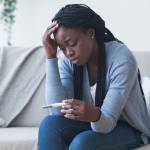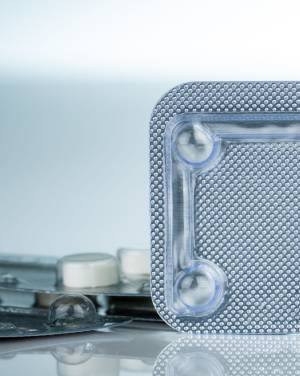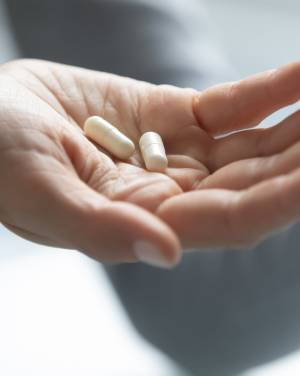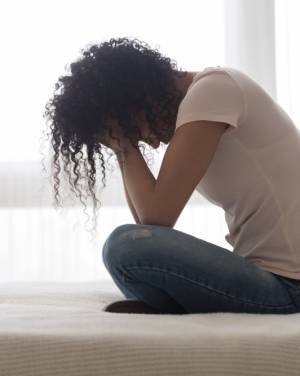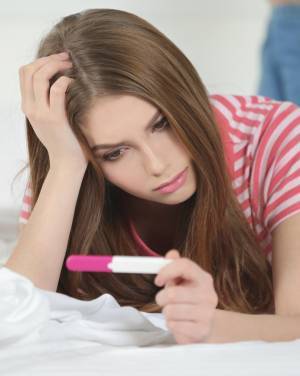Information and Advice on the Morning-After Pill
💊 Wondering whether to take the morning-after pill? Take the quiz!
- Perhaps you are wondering whether to take the morning-after pill?
- Or maybe you fear you could be pregnant despite the morning-after pill? Perhaps you are noticing symptoms that could be signs of pregnancy.
- This article provides information regarding efficacy, timing, side effects, and experiences.
Morning-After Pill – Quiz
Is the morning-after pill is right for me? Answer three multiple-choice questions and receive an immediate evaluation!
How Does the Morning-After Pill Work?
The purpose of the emergency contraceptive pill is to postpone ovulation. You can only get pregnant if sperm is present in your body during your fertile window. This is around your time of ovulation. By inhibiting or delaying ovulation, the morning-after pill aims to prevent sperm cells from being capable of fertilization at the time of ovulation. However, sperm survives in the female body for up to five days.
If ovulation has already occurred when taking the morning-after pill, it cannot be ruled out that the active ingredient may prevent the implantation of an already fertilized egg. The hormones in the morning-after pill hinder the establishment of the uterine lining with essential nutrients, thus making it inhospitable for a fertilized egg.
A fertilized egg may also be hindered from traveling down the fallopian tube (place of conception) to the uterus. The hormones in the morning-after pill can interfere with fallopian tube motility, causing the fertilized egg to die in place.
When to Take the Morning-After Pill?
There are two types of morning-after pill:
- Levonorgestrel (Plan B®, One-Step®, and PiDaNa®)
Generic counterparts: Take Action®, Next Choice®, One Dose®, My Way®, Option 2™, Prevenza®, My Choice®, Aftera®, Postrelle®, Levonelle®, NorLevo®, and EContra®
To be taken within 72 hours, i.e., three days, of sexual intercourse
- Ulipristal acetate (Ella® aka ellaOne®)
To be taken within 120 hours, i.e., five days, of sexual intercourse
Both active ingredients show the best results if taken within 12 hours of sexual intercourse.
One dose suffices for each particular cycle. However, other medications may counteract its effect.
Both levonorgestrel and ulipristal acetate are meant to be taken before ovulation.
Ella® vs. Plan B®
The active ingredients of Ella® and Plan B® differ. Both are intended, among other things, to inhibit the body's natural estrogen, which is primarily responsible for egg maturation, ovulation, and the establishment of the uterine lining.
Ella®’s active ingredient, ulipristal acetate, is a selective progesterone receptor modulator. It inhibits the reception of progesterone (aka pregnancy hormone).
Ella® provides a high dosage of the active ingredient, allowing it to be taken within a longer time span. The downside is that it may also come with more significant side effects. Therefore, it can be obtained by prescription only in the US. When taking Ella® it is more likely that other effects come into play regarding the transportation and implantation of a fertilized egg, as recent studies show.
Plan B® contains the progestin levonorgestrel, a synthetic version of the pregnancy hormone progesterone.
It should ideally be taken within twelve hours of intercourse and no later than 72 hours (3 days) after having sex. Plan B® is more widely available in the US and, unlike Ella®, can be purchased over the counter at most pharmacies.
| Ella®/ellaOne® | Plan B® | |
|---|---|---|
| Active Ingredient | Ulipristal acetate | Levonorgestrel |
| Timeframe | Within 120 hours (5 days) of sexual intercourse | Within 72 hours (3 days) of sexual intercourse |
| Number of pregnancies (per 100 users) |
|
|
Source²
Can You Take Plan B on Birth Control?
Perhaps you are on birth control but skipped two or more doses or are concerned about a possible pregnancy for other reasons. Now you are wondering whether you can take Plan B on birth control: While it is not necessary to use Plan B if birth control was used as prescribed, Plan B does not cancel out birth control, nor does birth control cancel out Plan B. You can resume taking any form of birth control immediately following Plan B (active ingredient levonorgestrel).
This holds true for Plan B only. When using Ella (active ingredient ulipristal acetate), you must wait at least five days before using any form of hormonal birth control (pill, patch, injection, ring). Otherwise, the medications may cancel each other out.
How Much Does the Morning-After Pill Cost, and Where Can I Get It?
In the US, only Plan B® can be purchased over the counter at the pharmacy. Ella® is available by prescription only.
Internationally, prices are very similar: Brand names cost about $40-$50, while generics can be obtained for as low as $11. The morning-after pill can be purchased online for approx $20.
In the UK, both Levonelle® and ellaOne® are available for free from select pharmacies.
In the US, there is no copay for Ella® and Plan B One Step® with insurance. However, this will likely require a prescription, even for Plan B®.
Minors under the age of 16 need a prescription to obtain emergency contraception pills in some countries, such as Australia.
In some countries, including the UK and Australia, men cannot buy the morning-after pill.
Morning-After Pill Side Effects
The morning-after pill is a high-dose hormone-altering drug with significant side effects. These include nausea, dizziness, abdominal pain, vomiting, and delayed menstruation. Some women experience spotting or inter-menstrual bleeding and other deviations from their regular cycle.
For these reasons, the morning-after pill is also referred to as "emergency contraception" since it should not be used on a regular basis.
Taking the morning-after pill often causes the next menstrual period to be pushed back, which can cause uncertainty and concern about a possible pregnancy.
Morning-After Pill Experiences
"On 07/20, I had sex with my boyfriend. Right at the end, the condom burst... we drove to the pharmacy to get the morning-after pill. (...) Six days later, on 07/26, I had some spotting for three days (...) My period was supposed to start on Aug. 8, but it still has not come... Do I wait some more? Or do I need to do something? What is my next step?"
– This experience was shared (in German) on Profemina's open forum.
If this is your situation, and you are concerned about whether you could be pregnant in spite of the morning-after pill, check out our article: Pregnant Despite Morning-After Pill for advice and information.
Where Do I Go From Here?
You probably feel the time crunch and sense the need to act quickly. At the same time, you might wonder whether the morning-after pill would even work for you — and what you would do if you ended up pregnant...
Try these tips:
Take a deep breath and choose not to rush. You have at least a few hours if not a few days to decide what to do.
You are doing what is most profitable to you right now: researching the facts. You may discern that your fertile window is still a long way off, making the morning-after pill unnecessary — or your ovulation happened days before having sex, making a possible pregnancy very unlikely.
Ask your doctor or pharmacist if you want more information about the emergency contraceptive pill's side effects and applicability.
-
The morning-after pill works by delaying an imminent ovulation. Depending on the active ingredient, it is effective if taken within 3 or 5 days of sexual intercourse. Consult your healthcare provider or pharmacist if unsure whether this is the right timing for the morning-after pill.
-
A single dose, taken after intercourse, suffices. If the situation arises again within the same menstrual cycle, consult your doctor or pharmacist before repeating a dose. The morning-after pill alters your hormone levels. Therefore, it is not advisable to use it regularly in place of contraception. Carefully weigh whether using the morning-after pill as an emergency contraceptive is what you want.
-
Every woman gets to decide whether it makes sense for her to take the morning-after pill. The effectiveness of the morning-after pill hinges on multiple factors, such as your current phase in your menstrual cycle or whether ovulation has yet to occur. Side effects should also be taken into account. Consult your doctor or pharmacist, if you wonder whether the morning-after pill is right for you.


